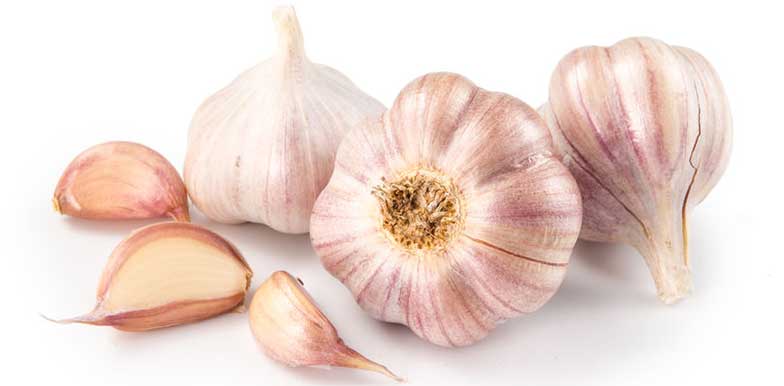Garlic, hand dryers, others do not prevent Coronavirus – WHO
There have been a lot of myths and misinformation about the detection, prevention and treatment of the Coronavirus Disease 2019(COVID-19). Some of the myths include the belief that hand dryers, garlic and ultra violet disinfection lamp could kill the disease. The World Health Organisation (WHO) has said that garlic does not prevent the new coronavirus, […]

Garlic_Extrac
There have been a lot of myths and misinformation about the detection, prevention and treatment of the Coronavirus Disease 2019(COVID-19).
Some of the myths include the belief that hand dryers, garlic and ultra violet disinfection lamp could kill the disease.
The World Health Organisation (WHO) has said that garlic does not prevent the new coronavirus, and that antibiotics, hand dryers, and ultra violet do not kill it. It also revealed and advised the public on thirteen of the commonest myths surrounding the outbreak.
Hand dryers
WHO said hand dryers were not effective in killing the 2019-nCoV. “To protect yourself against the new coronavirus, you should frequently clean your hands with an alcohol-based hand rub or wash them with soap and water. Once your hands are cleaned, you should dry them thoroughly by using paper towels or a warm air dryer.”
Ultra Violet lamp
The WHO warned that UV lamps should not be used to sterilize hands or other areas of skin as UV radiation can cause skin irritation.
Garlic
The WHO also said while garlic is a healthy food that may have some antimicrobial properties, there is however, no evidence from the current outbreak that eating garlic has protected people from the new coronavirus.
Sesame Oil
It also said that sesame oil does not block the new coronavirus from entering the body as some people believe. “No. Sesame oil does not kill the new coronavirus. There are some chemical disinfectants that can kill the 2019-nCoV on surfaces. These include bleach/chlorine-based disinfectants, either solvents, 75% ethanol, peracetic acid and chloroform.
“However, they have little or no impact on the virus if you put them on the skin or under your nose. It can even be dangerous to put these chemicals on your skin,” it said.
Spraying alcohol or chlorine
WHO also debunked the myth that spraying alcohol or chlorine all over your body could kill the new coronavirus “Spraying alcohol or chlorine all over your body will not kill viruses that have already entered your body. Spraying such substances can be harmful to clothes or mucous membranes (i.e. eyes, mouth). Be aware that both alcohol and chlorine can be useful to disinfect surfaces, but they need to be used under appropriate recommendations,” WHO said.
Thermal scanners in detecting the virus
The organization said thermal scanners are effective in detecting people who have developed a fever because of infection with the new coronavirus but they cannot detect people who are infected but are not yet sick with fever. This is because it takes between 2 and 10 days before people who are infected become sick and develop a fever, it said.
Gargling mouthwash
There is no evidence that using mouthwash will protect you from infection with the new coronavirus, WHO said.
Some brands or mouthwash can eliminate certain microbes for a few minutes in the saliva in your mouth. However, this does not mean they protect you from 2019-nCoV infection, the organization said.
Antibiotics
WHO said antibiotics do not prevent or treat the new coronavirus. It said antibiotics do not work against viruses, only bacteria, adding that the new coronavirus (2019-nCoV) is a virus and, therefore, antibiotics should not be used as a means of prevention or treatment.
“However, if you are hospitalized for the 2019-nCoV, you may receive antibiotics because bacterial co-infection is possible.”
Specific medicines
WHO said there was no specific medicine recommended to prevent or treat the new coronavirus (2019-nCoV) to date. “However, those infected with the virus should receive appropriate care to relieve and treat symptoms, and those with severe illness should receive optimized supportive care. Some specific treatments are under investigation, and will be tested through clinical trials. WHO is helping to accelerate research and development efforts with a range or partners.”
Contrary to belief that it is not safe to receive a letter or a package from China because of the risk of contracting the new coronavirus ,WHO said it was safe saying that from previous analysis, coronaviruses do not survive long on objects, such as letters or packages.
It also said that at present there was no evidence that pets at home spread the new coronavirus (2019-nCoV).
WHO busted the myth that vaccines against pneumonia such as pneumococcal vaccine and Haemophilus influenza type B (Hib) vaccine provide protection against the new coronavirus. It said: The virus is so new and different that it needs its own vaccine. Researchers are trying to develop a vaccine against 2019-nCoV, and WHO is supporting their efforts. Although these vaccines are not effective against 2019-nCoV, vaccination against respiratory illnesses is highly recommended to protect your health.
According to WHO, there was also no evidence that regularly rinsing the nose with saline has protected people from infection with the new coronavirus.
The organization said people of all ages could be infected by the new coronavirus (2019-nCoV) not just older people or younger people. It advised people of all ages to take steps to protect themselves from the virus, for example by following good hand hygiene and good respiratory hygiene.
